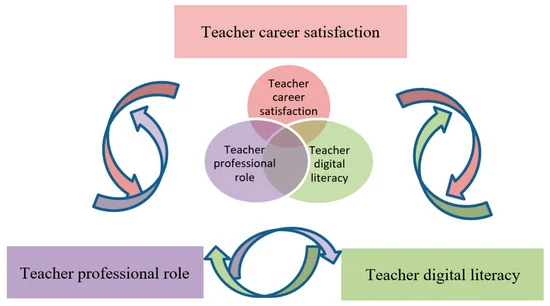
The sustainability of the teaching profession faces unprecedented challenges as teachers navigate increasing demands, complex student needs, accountability pressures, and rapidly changing expectations. Alarming attrition rates—with nearly 50% of new teachers leaving the profession within five years in some regions—signal systemic issues that threaten educational quality and stability. Addressing teacher wellbeing represents not merely personal concern but essential professional priority with direct implications for student outcomes, school culture, and the future of education systems worldwide.
Teacher stress has reached concerning levels across educational contexts, with surveys consistently showing higher workplace stress than many other professions. Contributing factors include excessive workload, limited autonomy, inadequate resources, role ambiguity, and emotional labor demands of meeting diverse student needs. The resulting burnout manifests through emotional exhaustion, depersonalization toward students, and diminished sense of accomplishment despite significant effort. These conditions affect not only teacher quality of life but also instructional effectiveness, classroom management, student relationships, and ultimately student achievement.
Teacher Wellbeing
Physical wellbeing concerns include sleep disruption from work-related stress, limited physical activity due to demanding schedules, voice strain from continuous speaking, exposure to illness in close-contact environments, and ergonomic issues from classroom design limitations. These physical dimensions interact with psychological stress to create comprehensive health impacts that contribute to increased absenteeism, reduced effectiveness, and premature career exit. Addressing these concerns requires both individual health practices and systemic workplace modifications that support rather than undermine physical wellbeing.
Emotional labor—managing one’s emotions to fulfill professional role expectations—represents particularly intensive demand in teaching contexts that require constant emotional regulation while working with diverse student needs, challenging behaviors, anxious parents, and conflicting administrative expectations. This ongoing emotion management creates significant psychological burden when teachers must regularly suppress authentic reactions while projecting calm, enthusiasm, or authority regardless of actual emotional state. Supporting sustainable practice requires acknowledging this invisible work while developing both individual regulation strategies and supportive professional cultures that validate emotional challenges.
Work-life balance challenges stem from teaching’s notorious boundary-crossing tendencies, with work regularly extending into evenings, weekends, and supposed vacation periods through grading, planning, communication, and mental preoccupation with student concerns. The resulting role conflict creates stress particularly for teachers with significant family responsibilities, often forcing impossible choices between professional effectiveness and personal wellbeing. Addressing these tensions requires both individual boundary-setting practices and systemic approaches that create sustainable workload expectations rather than normalizing continuous work beyond contracted hours.
Professional Sustainability
Professional identity issues contribute significantly to wellbeing challenges when teachers perceive disconnect between their educational values and required practices, experience deprofessionalization through prescriptive curriculum or excessive standardization, or face public criticism that devalues their expertise and commitment. These identity threats undermine the intrinsic motivation and sense of purpose that initially attract many to teaching, replacing vocational fulfillment with compliance-focused task completion. Sustainable practice requires affirming teacher professional judgment while creating sufficient structure for consistency without excessive prescription that diminishes professional autonomy.
Organizational factors profoundly influence teacher wellbeing through leadership approaches, collegial relationships, school culture, and institutional policies. Supportive leadership demonstrates respect for teacher expertise, provides appropriate autonomy balanced with clear expectations, offers recognition for contribution, and creates psychological safety for innovation and authentic communication. Toxic organizational environments characterized by blame culture, excessive control, inadequate support, or competitive rather than collaborative relationships significantly increase burnout risk regardless of individual coping capabilities.
Resilience has received increasing attention as protective factor against professional stress, though focusing exclusively on individual resilience risks placing undue responsibility on teachers to withstand problematic systems rather than addressing structural issues creating excessive strain. Balanced approaches recognize that resilience development occurs through both personal practices and systemic supports including mentoring relationships, reflective supervision, professional learning communities, and institutional structures that proactively address common stressors rather than expecting endless individual adaptation to unsustainable conditions.
Collective efficacy—shared belief in the team’s capability to positively impact student outcomes—provides powerful buffer against individual burnout by distributing responsibility, normalizing both challenges and successes as collective rather than individual experiences, and creating mutual support systems for professional growth. Developing this collective capacity requires collaborative structures that reduce isolation, leadership that emphasizes shared accomplishment rather than individual performance, and trust-building practices that enable authentic professional vulnerability and support-seeking without fear of judgment.
Professional learning approaches significantly impact wellbeing through their design and implementation. Development experiences that acknowledge teachers as knowledgeable professionals, address authentic classroom challenges, provide adequate implementation support, and connect to meaningful purpose enhance both effectiveness and satisfaction. Conversely, fragmented, compliance-oriented training disconnected from actual practice needs creates additional stress through wasted time and implied incompetence messages. Effective professional learning simultaneously builds capability and affirms professional identity rather than treating teachers as technical implementers requiring correction.
Compensation issues affect teacher wellbeing beyond immediate financial implications. Inadequate salary relative to education level and professional responsibility creates stress through financial pressure, necessity for supplemental employment, inability to repay educational debt, and implied devaluation of professional contribution. Comprehensive compensation approaches address not only base salary but also career progression opportunities, performance recognition systems, and benefits supporting work-life balance including family leave, flexible scheduling options, and retirement security that acknowledges teaching’s unique career structure.
Teacher preparation programs significantly influence professional sustainability through their development of realistic expectations, practical coping strategies, collaborative capabilities, and reflective practices that support career-long adaptation. Effective preparation balances idealism that motivates educational commitment with pragmatic understanding of systemic challenges, develops explicit strategies for managing workload and emotional demands, builds professional identity resilient to external criticism, and establishes help-seeking habits that support ongoing professional growth without shame or inadequacy implications.
Conclusion
The future of teacher wellbeing requires moving beyond individual self-care advice that places responsibility primarily on teachers to withstand problematic systems. Sustainable approaches require comprehensive redesign of the teaching profession addressing workload structures, collaborative time allocation, career progression opportunities, leadership development, public messaging about educational purpose, and fundamental respect for teacher expertise within accountability systems. These systemic changes acknowledge that teacher wellbeing represents not luxury but necessity for educational systems to attract and retain the talented professionals essential for fulfilling education’s crucial societal purpose.



